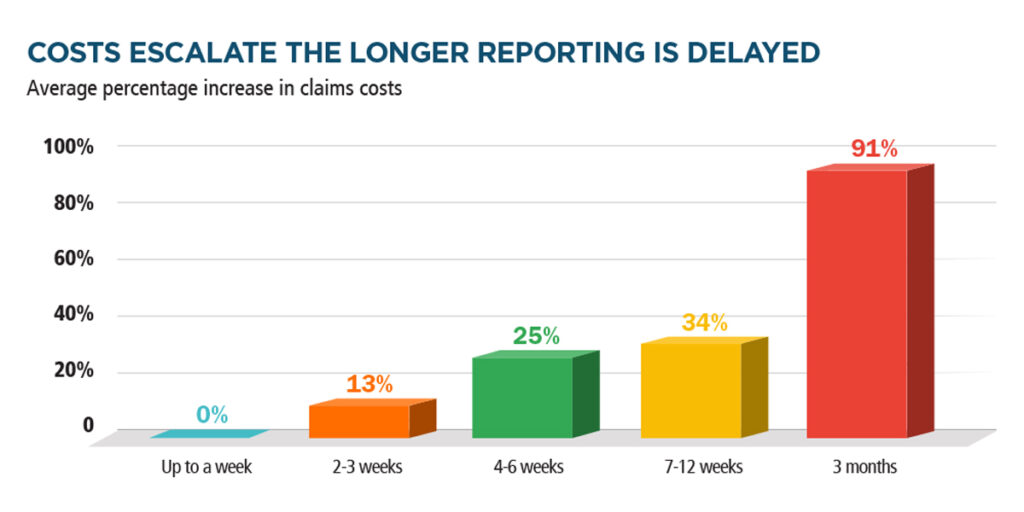
How long you wait to notify your workers’ compensation insurer of a workplace injury can significantly affect the cost of that claim. When calculating your premium, one of the key factors is the cost and frequency of prior claims over the past few years. By improving your organization’s injury notification times, you can positively impact the claim’s cost and help reduce overall workers’ comp premiums going forward.
Can Early Reporting Truly Affect the Cost of a Claim?
The graph below shows results from a National Council on Compensation Insurance study looking at the cost of a claim based on the delay between incidence and notification. Note that even as little as a two to three-week delay can increase the cost of the claim by over 10%.
Why Does Early Reporting Work?
The sooner medical treatment begins, the better the outcome. For a workers’ compensation claim, the sooner your insurer knows about an injury, the quicker they can start collecting information and planning appropriate treatment options.
If medical treatment is delayed, costs are likely to increase both in terms of medical expenses and lost time from work, which needs to be compensated. When your insurer is notified immediately, they can arrange for the worker to start medical treatment promptly, potentially reducing the length and severity of their treatment program.
For the injured worker, this means a shorter recovery time, better health outcomes, and a quicker return to work, likely with a more positive attitude toward their injury and workplace. For you as the employer, this translates to lower costs for covering wages and treatment, and less disruption to your workplace while covering the injured worker’s duties.
Claims Filing Tips
- Develop internal procedures for reporting injuries. Ensure that your staff understands the importance of immediate injury reporting and is aware of your reporting procedures.
- Avoid questioning employees’ integrity when they report an injury.
- Familiarize yourself with regulatory and legal requirements for reporting workplace injuries.
- Report a claim as soon as you learn about it.
- Encourage safe work practices and ensure employees practice proper safety techniques.
- If an injured worker has partial capacity for work, consider offering alternate duties while they recover. This can positively affect potential disability levels and reduce the premium impact of lost time.
Conclusion
Early reporting leads to better medical outcomes, reduced costs, and a quicker return to work for injured employees. As an employer, it minimizes disruption and lowers financial burdens. Developing a proactive claims filing process and encouraging safe work practices can greatly improve your workers’ compensation outcomes.
